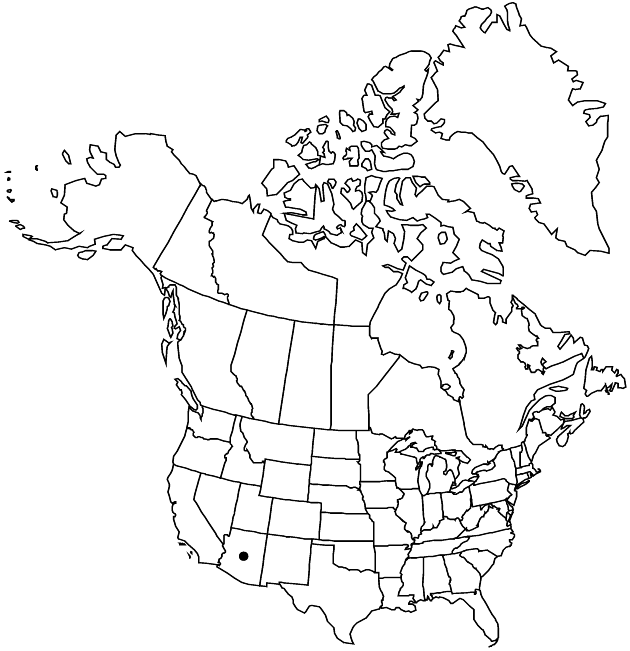Difference between revisions of "Senecio arizonicus"
Bull. Torrey Bot. Club 10: 87. 1883.
FNA>Volume Importer |
imported>Volume Importer |
||
| (One intermediate revision by the same user not shown) | |||
| Line 6: | Line 6: | ||
|place=10: 87. 1883 | |place=10: 87. 1883 | ||
|year=1883 | |year=1883 | ||
| + | }} | ||
| + | |special_status={{Treatment/ID/Special_status | ||
| + | |code=E | ||
| + | |label=Endemic | ||
}} | }} | ||
|basionyms= | |basionyms= | ||
| Line 45: | Line 49: | ||
|publication title=Bull. Torrey Bot. Club | |publication title=Bull. Torrey Bot. Club | ||
|publication year=1883 | |publication year=1883 | ||
| − | |special status= | + | |special status=Endemic |
| − | |source xml=https:// | + | |source xml=https://bitbucket.org/aafc-mbb/fna-data-curation/src/2e0870ddd59836b60bcf96646a41e87ea5a5943a/coarse_grained_fna_xml/V19-20-21/V20_1227.xml |
|tribe=Asteraceae tribe Senecioneae | |tribe=Asteraceae tribe Senecioneae | ||
|genus=Senecio | |genus=Senecio | ||
Latest revision as of 19:59, 5 November 2020
Perennials, (20–)30–40(–60) cm (rhizomes suberect or weakly spreading). Herbage lanate-arachnose or tomentose, unevenly glabrescent. Stems 1(–2). Leaves (often purplish abaxially) reduced distally; petiolate; blades ovate to subelliptic, (5–)6–10(–15) × (2.5–)3–5(–9) cm, bases tapered or contracted, margins subentire to denticulate (denticles callous; mid and distal leaves bractlike). Heads (2–)5–12(–20) in corymbiform arrays. Calyculi of 2–5+ bractlets (largest to 3 mm). Phyllaries (± 13) ± 21, 5–7 mm, tips green. Ray florets ± 13; corolla laminae 5–10 mm. Cypselae hairy (especially on angles). 2n = 40.
Phenology: Flowering late spring–summer.
Habitat: Openings in pine-oak woodlands
Elevation: 1600–2100 m
Discussion
Senecio arizonicus is reputedly in southern New Mexico (W. C. Martin and C. R. Hutchins 1980); that seems unlikely and should be checked.
Selected References
None.
